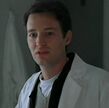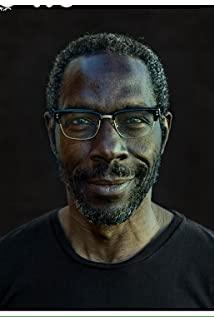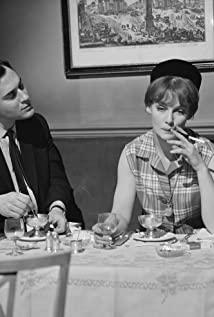Yesterday, I felt death following the movie "Throwing Aside My Space".
The movie is about the 48-year-old female professor of literature, Vivian, who was discovered by a doctor that there is almost no cure for ovarian cancer, and how she reflected on her life in this last time.
1
When Vivian first went to the hospital for an examination, a little joke appeared because of the pun of the word Doctor (both doctor and doctor).
Hospital staff: (Doctor?) (What is your doctor?)
Vivian: Yeah, I am a Doctor of literature. (Yes, I am a Doctor of literature.)
While being scanned in the radiological examination room, Vivienne said: "I am a professor of literature, and my research direction is..." It was like talking to a staff member and muttering to herself. Because the staff did not respond at all.
Vivienne's greatest self-positioning in life is the role of "Professor of Literature". She was neither married nor had any children, and she had never even had a boyfriend.
When she was not facing death threats, she was immersed in the pursuit of literature and the rigor of teaching to enjoy herself. Suddenly, she could only be in the hospital. Because the treatment hair was all lost, she could not go to class and could only experience it in the hospital. Various treatments and examinations. Under the threat of death, she faced a self-crisis most urgently: Who am I?
At first, she didn't hesitate: even if I was sick, I was still a professor of literature.
Slowly, she began to understand that in the face of death, no one cares who you are. For the hospital staff, what they need to understand is your illness. As for your social role, that is not important at all. So, besides the professor of literature, who else is she?
Vivian was in the hospital bed, thinking about class with the students. She analyzes and researches literature more intellectually, rather than understanding and feeling from life.
Vivienne recalled when her tutor called her to the office to comment on her homework when she was studying in university. After the review, her tutor said to her: "Don't go to the library, there is nothing you want there. Go live!"
However, she walked out of the office and saw the joyful students on the grass. She was at a loss for a while, and finally chose to go to the library.
2
Just like when she was a professor of literature, Vivian was still strong and uncompromising when she was sick. She struggled with the illness hard. With little hope of survival, she chose to use the largest dose of medicine, which is unprecedented. Despite the severe side effects, she miraculously persisted.
However, when she thought of some scenes, she shed tears.
She thought of the conversation between a student and her before, which was a bit funny and a bit sad.
Student: Professor, can I talk to you?
Vivian (busy to correct homework): Let's talk!
Student: Can I postpone my final paper?
Vivienne: Why? Don't tell me your grandmother is dead.
Student: Do you know?
Vivienne: I guess. Don't be sloppy, the final paper should be handed in as scheduled.
Vivian left the classroom, leaving behind the students, tears in her eyes.
Vivienne was crying while thinking: What did I do to him?
The most important memory in life turned out to be about love.
She doesn't understand love, and the poems she studies are often full of emotions. However, she stops at the library and does not want to go to life. She is unwilling to be gracious to students, and uncompromising to students.
Ironically, the young doctor who treated her turned out to be a student who had attended her class. He was young and ambitious, and he explored cancer as something unknown and mysterious. He treats Vivienne as an important medical research object, and doesn't care about her feelings.
Vivienne had ruthlessly criticized students who did not listen to the class in class, and did not take into account the students' feelings.
3
The black-skinned head nurse does not understand literature, but she regards Vivian as a person who needs care. Only she noticed that when Vivian was hospitalized, no one came to see her.
She said: "If you need someone to speak, I'm always there."
Regarding whether to rescue when the heart stops, the head nurse does not want Vivian to continue to suffer and tell the truth. Of course the attending doctor wanted to continue her life, no matter how many tubes she was plugged into, because she was only the subject of their research.
Vivienne said: "I have never compromised. However, if the heart stops, then let it go!"
Vivian compromised!
If death must come, accept it! Instead of filling up the tube and living deliriously, at least you can leave quietly and decently.
4
Death must come, it's just a matter of time.
Most people will only be immersed in self-pursuit and realization before facing death threats. And this pursuit is often materialized into an ideal, a goal, and an ambition.
When the literature student Vivian felt the enigmatic charm of literature immaturely, she plunged into this idealization, step by step to the position of a respectable professor. However, her inner strength is rigid, and she does not compromise. What does uncompromising mean? It seems to be an advantage, but it is also a disadvantage. In her career, she is undoubtedly successful; however, in life, she can't be flexible, she is inhumane, and she is cut off from love.
In the movie, Vivian's mentor is a good combination of the pursuit of ideals and the love of life. She loves life and warns student Vivienne: "Go live! There is nothing you want in the library!" What a thought-provoking warning!
If literature only ends with literature, then literature is dead. Only when literature comes from life can literature be alive.
At the end of the movie, Vivienne’s mentor went to see her grandson in the city. He then went to Vivienne’s office to find out that she was sick. Then he came to the hospital to see her. At this time, Vivienne was already in extreme pain. Unable to control himself, the tutor gently sat on the edge of the bed, hugging her, took out the fairy tale book bought for his grandson from the bag, and read a fairy tale to her:
Once upon a time, there was a rabbit who wanted to run away from home. So he said to his mother: "I'm going to run away."
"If you run away," mother said, "I will chase you, because you are my little baby."
"If you come to chase me," said the little rabbit, "I will become a little fish in the stream and swim far away."
"If you become a little fish in the stream," said my mother, "I will become a fisherman to catch you."
"If you become a fisherman," said the little rabbit, "I will become a big rock on the mountain, so you can't catch me."
"If you become a big rock on a high mountain," Mom said, "I will become a mountain climber and I will climb up the high mountain to find you."
The warm and happy fairy tale calmed Vivian's pain, she fell asleep peacefully, and the tears on her face slowly dried.
View more about Wit reviews











